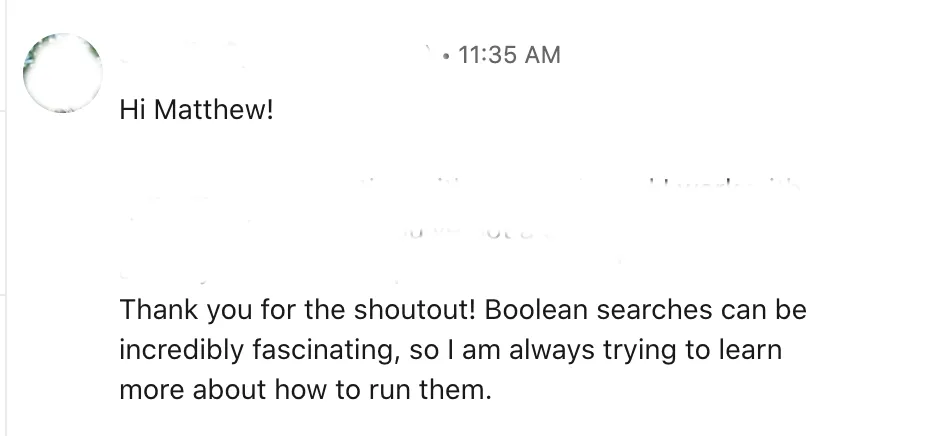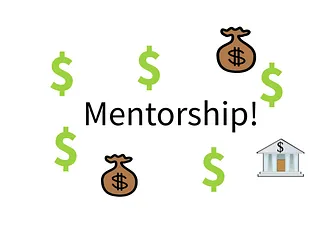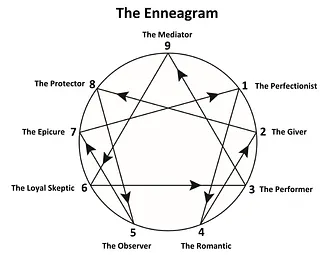Want an unfair advantage in your tech career? Consume content meant for other roles
Learning about roles you work with can provide a meaningful competitive advantage in the modern tech world
As I learned from The Startup of You Podcast, in order to stand out in your career, you need a competitive advantage.
In my opinion, one of the greatest tools to gain competitive advantage in a tech career is hidden in plain sight: it’s the wealth of information out there made for people in roles you work with.
Competitive advantage for the taking
Plenty of people consume career content meant for people in their own role. Not so many people take the time to consume content meant for people in roles they work with.
Doing so, however, can be a game-changer. There’s just something about seeing a problem from someone else’s perspective.
Why to seek out content on other roles, beyond just talking with people about their roles
Beyond reading and watching content, you can also meet with people in these roles one-on-one and ask them about their work, which is a great practice for your career and something I hope to write about more.
Still, there is something special about actually taking the time to engage with content that is “native” to these other roles.
Here are some advantages of content on other roles:
You can access it anytime, with no need to schedule a meeting, and you can even automate the process by subscribing to newsletters, channels, and podcasts.
People sometimes filter themselves or “dumb down” their explanations of their work if they’re explaining their role to outsiders. Seeking out content meant for people in the roles helps you to get around this.
Acting as though you’re in the role yourself and trying to learn how to do it well gives you a greater level of empathy. You’re trying to spend time in their shoes.
People are more likely to share their honest feelings in these protected contexts, such as how they really feel about the way people in other roles interact with them.
Helps you to avoid common inter-role pitfalls
When I started looking at content for recruiters, I realized, there are so many complaints about hiring managers in talks by recruiters. For example, see this segment on how “Hiring managers are required by law to be unrealistic.” It could be very helpful, as a manager who’s hiring and working with recruiters, to understand what not to do. This is a point of view that you’re unlikely to get from a simple coffee chat with a recruiter about “So, what do you do in your job?”
The same goes for any other pair of roles that often to butt heads or fail to understand one another. A little understanding and honesty can go a long way.
Cross-functional understanding is critical in modern tech companies
Perhaps, decades ago, it was ok to just stay in your lane and learn about only your own profession. I don’t know if many lawyers or ad execs really studied the work of being a secretary, for example. However, in the modern tech landscape, not only are there a myriad of different roles (many which didn’t even exist until recently), but the people in these roles must collaborate very closely in order to succeed.
When you’re not simply handing work off to another part of the company but rather working together as a giant multi-faceted team, it becomes critical in tech for people to understand and truly “get” each other’s roles.
This is usually a key requirement in engineering leadership job descriptions. You see lots of job descriptions asking that candidates be able to collaborate cross-functionally with product, business stakeholders, QA., etc. as well as to understand the customer and the overall business.
If you think of “cross-functional understanding” as a programming language, it would be one of the most highly sought-after languages in engineering leadership. In that case, doesn’t it make sense to invest time in learning it?
You get some degree of understanding of other roles automatically through your work, but if you want to take it further — just as you would with side projects or tutorials to learn new languages — you need to put in some time and effort.
Engineering leaders already look at the org from different roles as unavoidable part of their career progression
Climbing the engineering leadership ladder forces you to see things from different roles. It’s common to hear people say that after being managers, they were better as individual contributors (ICs) if they returned to that role or that the best managers and ICs have often gone back and forth between the roles.
“The best frontline eng managers in the world are the ones that are never more than 2-3 years removed from hands-on work, full time down in the trenches. The best individual contributors are the ones who have done time in management.
And the best technical leaders in the world are often the ones who do both. Back and forth. Like a pendulum.”—The Engineer/Manager Pendulum, Charity.wtf



Managers often say that once they clear a new level in the organization, their eyes are forever opened to things they didn’t understand before about the overall business and how things really work in a tech company. This has certainly been the case for me.
It’s a testament to the insight that switching roles in tech can bring.
However, you don’t have to wait to formally switch roles in order to start understanding other roles. You can start understanding other roles now by simply making it a priority to learn.
Some roles you might want to go “undercover” to learn about, if you work in tech
Product
CEO
President
Founder
Recruiter
TPM
Staff engineer
HR
QA
Data science
Sales
Customer (maybe a specific type of business owner or a certain market segment) - Don’t leave this one out! They serve an important role in any tech business.
Also don’t forget to refresh your memory what it’s like to be a software engineering individual contributor, once you break into management, whether by consuming content, reading forums, doing side projects, or actually returning to IC roles at times!
Boosts your empathy and understanding
There’s a good Manager Tools episode — the first one ever, actually — which says:
Relationships are key to getting things done at work and having a good career.
To have a good relationship with someone, it’s essential to care about what they care about.
“If you want a better relationship with other people, you must communicate in a way that works for them.”—Mark Horstman
Watching and reading content targeted for people in roles other than your own is a simple, concrete way to practice empathy.
I’ve had many “aha!” moments this way, where I finally understood, thanks to content meant for other roles, why people in a given role often seem to fixate on certain things or have particular chronic complaints.
Each role thinks they do a lot and are under-appreciated
When you look at “internal” content for a given role, you realize that people in each role are very aware of:
how difficult their role is
how under-appreciated their role is
how other people tend to assume that they don’t do anything that special
how hard it is to become truly great at their role
Learning about other roles helps you to avoid ignorantly assuming that people in that role don’t do much.
Helps to avoid underestimating the importance and difficulty other roles
As an engineering manager, I find it sad — and funny — to see Blind posts about how engineering managers are useless and don’t do anything. Don’t we wish!
I find it hard to believe that anyone would think engineering managers don’t do much, when we do so much to hold the organization together and keep things running. However, I’m ashamed to admit that until recently, I underestimated what recruiters do.
Lots of engineers treat recruiters as though they are unskilled gatekeepers. “You just need to get past the recruiter,” is a common mentality. Many hiring managers treat recruiters like unskilled order-takers. However, recruiting is a highly skilled job.
Let’s stop and think about it. Recruiting involves arranging in a two-sided marketplace with many shifting variables and time constraints. It takes a combination of many different skills, like sales, cold reach-outs, therapy, match-making, and (as I learned from delving into recruiter content one day), creative Boolean searching.
Just take one obvious thing that recruiters do — they reach out to potential candidates. Sounds simple enough. Just do a little LinkedIn search and pull up people, right?
Well, in the course of trying to understand recruiting role better, I came across this talk by @GlenCathey at LinkedIn Talent connect on Being a Boolean Search Ninja as a recruiter. As he says in a segment around 11:44 in the talk, “it’s very cerebral” trying to find a) quality candidates who b) haven’t already been contacted by tons of other recruiters.
I was floored by the level of subtlety and and strategy discussed in this talk. No “Java AND engineer” searches here. Glen goes into tactics such as natural language search, purposely misspelling words, searching for uncommon terms people might use to describe their jobs, using >50-item Boolean search strings, and eliminating easily-found people to focus the more valuable, less-contacted potential candidates. And that’s only finding the people — we haven’t even gotten into the reach-out message title, channel, content, timing, or personalization yet.
I encourage watching the talk to build your appreciation for how much skill can go into searching for candidates on LinkedIn (and to get some search ideas if you’re going to be sourcing your own candidates).
I was later contacted by recruiter who mentioned on her profile that she was good at this kind of highly-skilled Boolean search, and I made sure to give her props for it. I will never underestimate the work of finding potential candidates again!
Helps to clear up misconceptions about other roles
If you haven’t done a role yourself, it can appear from the outside that people in that role aren’t doing much.
If you’ve never managed, it can look like managers get paid a lot to sit around and chat with people and have meetings.
Likewise with directing, as Mike Seavers of Epic Games describes:
“What I think a lot of people don’t realize is that when you take on a broader leadership role, while it is true you take on more responsibility, you actually often have less control…. You can’t always just do whatever you want to do. There’s a lot of relationships you need to manage. There’s a lot of alignment that you have to get when you’re driving change.”
Learning about other roles helps you to avoid being the ignorant person who thinks their colleagues are just sitting around or enjoying bossing people around.
It’s not just a theoretical point — the respect you gain for people by understanding their roles comes across in your interactions with them.
Helps you to be strategic in your interaction with people in that role
Aside from boosting your appreciation for other roles, one of the biggest ways that understanding other roles can help you at work is by helping you to optimize your own actions in relation to people in that role.
For example, if you understand that managers are often spread thin and performance reviews are a lot of work for them, you can organize your achievements into a document that’s easy for them to review and consider while writing your review.
If you understand that recruiters often feel that hiring managers are being unreasonable, you can make it a point to be a reasonable hiring manager by clearly defining your needs and helping to source candidates that you like.
If you understand how recruiters use Boolean search on LinkedIn to find candidates, you can apply the knowledge to boost your profile’s SEO or even to inform your career decisions to maximize your marketability.
(Hint: “Current company” and “Past company” are major filters that recruiters use as proxies for candidate quality. It pays to have worked at large or respected companies. LinkedIn might be intensifying this effect by enabling these searches.)
As an example of where this can lead when it all comes together, here are some talks from John Vlastelica of Recruiting Toolbox on how, when hiring managers really understand and value recruiting — to the point of rolling their sleeves up and doing some traditional “recruiting” tasks themselves — they can be huge assets to their companies by attracting and closing great talent. Synergy between roles works!
Suggested resources
Here are some resources to learn about other roles on their own turf (feel free to suggest any others you recommend!).
Product
Reforge courses (all the courses are heavily focused on product; plus you can take the product courses, even if you are not a product manager yourself)
CEO/President
The Hard Thing About Hard Things: Building a Business When There Are No Easy Answers by Ben Horowitz
Recruiting/Hiring
LinkedIn Talent Connect past conferences (posted on LinkedIn Talent Solutions)
Talks by Brendan Browne, former VP of LinkedIn talent acquisition, such as this keynote
Director/VP/CTO
Level-up Engineering Podcast by Coding Sans
Staff or principal engineer
Manager
Do you try to learn about other roles in tech? Are there any resources or approaches you recommend? Let me know in the comments below!
If you’ve enjoyed this post, please subscribe and share!









